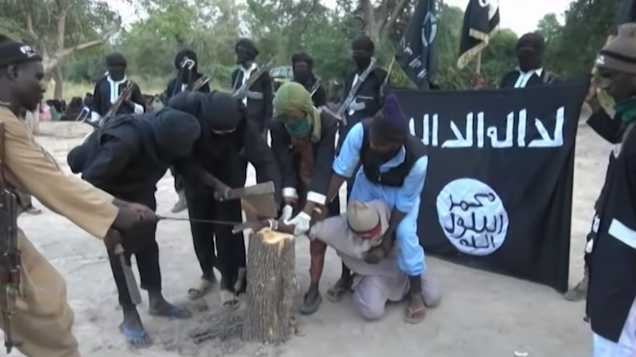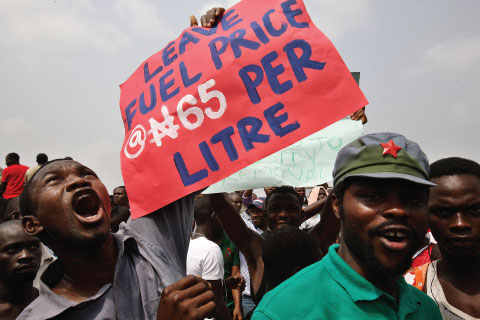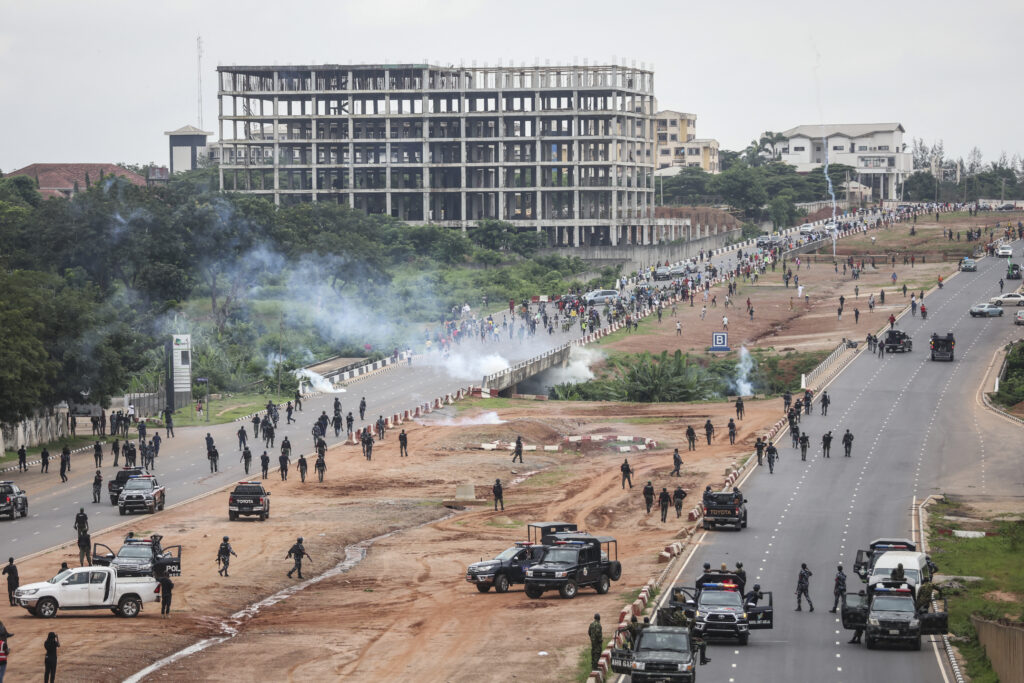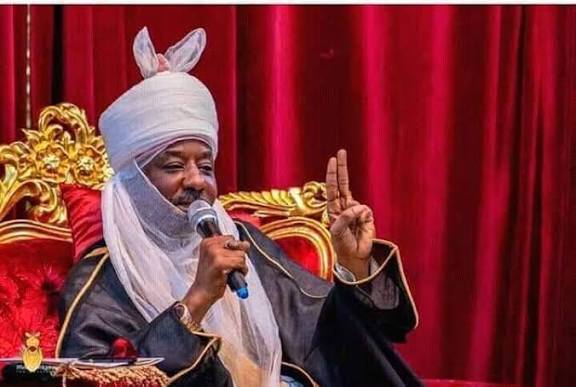The Kano Monarch revealed how security concerns frustrated Economic Reform in 2012, and warned that the current hardship could have been avoided a long time ago.
The Emir of Kano and former Governor of Central Bank of Nigeria (CBN), Muhammadu Sanusi Lamido II, has disclosed that former President Goodluck Jonathan suspended the full removal of petrol subsidy in 2012 due to fears that Boko Haram insurgents would attack protesters.
Sanusi revealed that the government compromised on a 50–percent removal, rather than the planned 100–percent, specifically to avoid creating a mass gathering that could become a target for a devastating terrorist attack.
The revelation came on Tuesday, 28th October, while speaking at the Oxford Global Think Tank Leadership Conference, held in the United Kingdom, and themed ‘Better Leader for a Better Nigeria’, where Sanusi analysed the economic consequences of the delayed reform. The current Emir of Kano was the CBN Governor during the 2012 crisis, when nationwide protests against subsidy removal grounded economic activities for nearly two weeks.
“If one suicide bomber had attacked protesters in Lagos, Kano, or Kaduna, and 200 people died, it would have gone beyond subsidy,” Sanusi stated “So I’ve got to give President Jonathan the credit… The only reason the government compromised was Boko Haram.”
The monarch described the subsidy regime as an unsustainable “naked hedge,” where the government guaranteed a fixed fuel price regardless of global oil prices or exchange rates.
“The federal government was saying I have an unlimited pocket,” Sanusi said. He detailed how the policy bankrupted the nation, forcing it to “borrow money to pay subsidies, to where we had to borrow money to pay interest on the borrowed money.”
Sanusi argued that Nigeria’s present economic difficulties could have been significantly mitigated if the subsidy had been removed in 2011. He recalled that his analysis at the CBN predicted a manageable, short-term spike in inflation to about 13%.
“If Nigerians had allowed the Jonathan government to remove the subsidy in 2011, there would have been pain,” he asserted. “But that pain would have been a very, very tiny fraction of what we are facing today. This is the cost of today.”
The Emir, who recently endorsed President Bola Tinubu’s decision to remove the subsidy as having “saved Nigeria from bankruptcy,” also took aim at the political class. He lamented that many educated leaders abandon their values for self-interest, living like illiterates despite their education.
Growing Crisis of Boko Haram, 2012 Fuel Subsidy Removal, OccupyNigeria Protest
The Boko Haram insurgency vitally gained ground in 2009, when the amalgamated Islamic militants and Jihadist rebels group known as Boko Haram declared a war against the government of Nigeria.

From the long–standing religious conflict between the Muslim and the Christian communities, especially in the northern part of the country, the terrorist organisation aimed to establish a highly controlled Islamic state in the region.
Based on the total number of people it killed and the casualties it sustained, Boko Haram was labeled among the deadliest terrorist organizations in the world, around the mid–2010 when the insurgency reached its peak.
Around this period, former President Jonathan sanctioned a policy that removed the fuel subsidy at a doubling price of N139 per liter against the previously sold N65, in a bid to address the country’s economic instability.
Although the idea was welcomed by economist experts as they strongly believed the removal is the most significant solution towards the long anticipated reform, as sustaining the cost of the subsidy is becoming a hedge burden to the country.
Being the second–largest reserves in Africa after Libya, and the continent’s largest producer of oil, at the rate of 37.2 billion barrels of proven oil reserves, Nigeria is the only member of the Organization of Petroleum Exporting Countries (OPEC) that depended on the imported refined fuel, which forced the citizens to suffer scarcity in the country.
Meanwhile, the government contributed a N73 subsidy, approximately N1,200 billion ($7.6 billion), or 2.6–percent of the country’s Gross Domestic Product (GDP) annually. This was regarded by Nigerians as the only way people benefited from the government. Hence, the consequence of the nationwide OccupyNigeria protest in 2012, which later compelled Jonathan to reverse the policy.

OccupyNigeria was a socio–political civil resistance movement staged to protest against the removal of fuel subsidy by the Federal Government of Nigeria under the administration of Goodluck Jonathan. Starting from 2nd January, 2012, the protest took place across major cities of Nigeria’s states including Kano, Lagos Abuja, Niger, among others, and even at the Nigerian High Commission in London.
Characterised by civil disobedience, civil resistance, strike actions, demonstrations and online activism, 16 people were reportedly shot dead by the Nigerian Police across Maiduguri, Ilorin, Gusau and Lagos.
President Tinubu Orchestrating the Same Policy He Once Fights Against
As the national leader of the Action Congress of Nigeria (ACN), now All Progressive Congress (APC), President Bola Ahmed Tinubu, alongside his supporters gladly led the 2012 OccupyNigeria campaign, while strongly opposed the removal of subsidy during the administration of People Democratic Party (PDP).
During a press conference, President Tinubu criticized the decision to remove fuel subsidy at that time, accusing Jonathan administration of violating the social contract it cemented with the people.
Against the above background, the current president of Nigeria shocked citizens with the total removal of fuel immediately he gained power in 2023—a policy he had emphasized during his campaigns.
Meanwhile, the president justified his decision, saying the subsidy could no longer be justified, as the funds would instead be spent on public infrastructure and to improve the lives of people.

The aftermath of the Tinubu’s fuel subsidy removal has induced life–threatening experiences on the people, leading to the 2024 EndBadGovernance protest, where Nigerians decried untold hardships hitting the country: high cost of living, food scarcity, hunger, unemployment, and bad governance.
Several human rights violations both against the civilians and journalists were reported to have marred the mass protest, as the state actors allegedly killed, detained and fired tear-gas on protesters.

